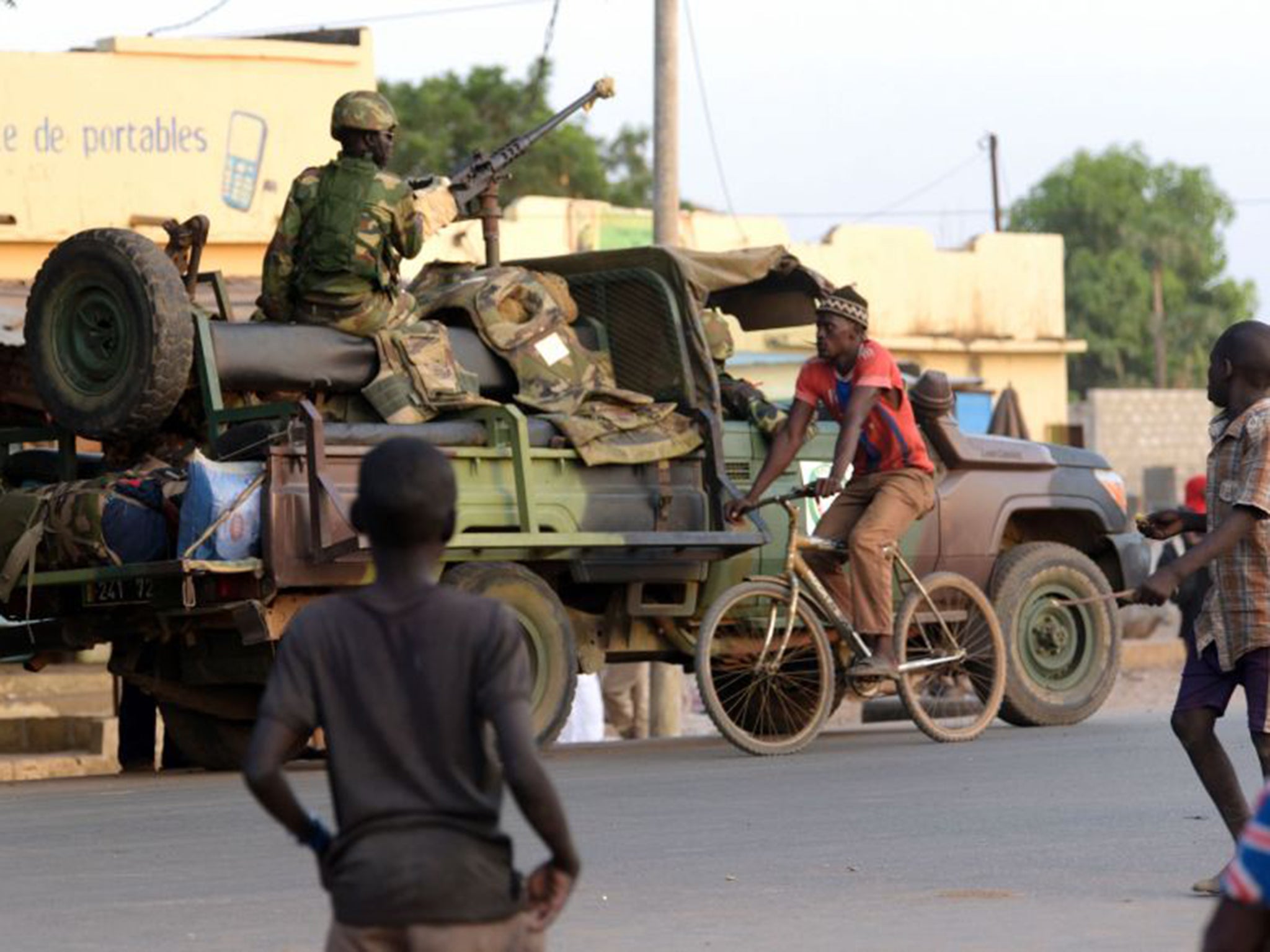Gambian Yahya Jammeh finally agrees to give up power and go into exile
'I can assure you that he has agreed to leave', says advisor to new President Adama Barrow

Your support helps us to tell the story
From reproductive rights to climate change to Big Tech, The Independent is on the ground when the story is developing. Whether it's investigating the financials of Elon Musk's pro-Trump PAC or producing our latest documentary, 'The A Word', which shines a light on the American women fighting for reproductive rights, we know how important it is to parse out the facts from the messaging.
At such a critical moment in US history, we need reporters on the ground. Your donation allows us to keep sending journalists to speak to both sides of the story.
The Independent is trusted by Americans across the entire political spectrum. And unlike many other quality news outlets, we choose not to lock Americans out of our reporting and analysis with paywalls. We believe quality journalism should be available to everyone, paid for by those who can afford it.
Your support makes all the difference.Gambia's defeated leader Yahya Jammeh announced early Saturday he has decided to relinquish power, after hours of last-ditch talks with regional leaders and the threat by a regional military force to make him leave.
"I believe it is not necessary that a single drop of blood be shed," Mr Jammeh said in a brief statement on state television. He promised that "all the issues we currently face will be resolved peacefully."
Regional armies, who entered The Gambia late on Thursday, were poised to remove him by force if required, as even his army chief, who had stood beside the former coup leader, recognised election winner Adama Barrow as the new commander-in-chief.
West African leaders Alpha Conde of Guinea and Mauritania's President Mohamed Ould Abdel Aziz travelled to the capital Banjul on Friday to allow Mr Jammeh one last chance to cede power peacefully.
"I can assure you that he has agreed to leave," Mai Ahmad Fatty, Mr Barrow's special advisor, told Reuters in Senegal's capital Dakar on Friday. He could not say where Mr Jammeh would go into exile.
Mr Barrow, who won the 1 December poll by a slim margin, was sworn into office at The Gambia's embassy in Dakar on Thursday and immediately called for regional and international support.
West African militaries announced soon after that they had crossed into The Gambia, which is almost completely surrounded by Senegal.
"The rule of fear has been banished from The Gambia for good," Mr Barrow told a crowd gathered at a Dakar hotel on Friday. "To all of you forced by political circumstances to flee our country, you now have the liberty to return home."
The Gambia's army chief General Ousman Badjie, who had been perhaps the last remaining pillar of support for Mr Jammeh, said he would welcome, not fight, the regional force.
"We are going to welcome them with flowers and make them a cup of tea," he told Reuters. "This is a political problem. It's a misunderstanding. We are not going to fight Nigerian, Togolese or any military that comes."
The military operation was halted late on Thursday to give mediation a chance.
A midday deadline was extended on Friday as negotiations, which diplomats said were focusing on a deal that would grant Mr Jammeh immunity from prosecution, continued.
One regional diplomat said the delegation was planning to spend the night in Banjul and Mr Jammeh was looking for "extremely solid guarantees" before leaving.
"There is a real possibility this could work. I don't think he is going the (Saddam) Hussein route," he said, referring to the Iraqi leader who was arrested in 2003 following an invasion, then tried and hanged.
Mr Jammeh, in power since a 1994 coup, initially conceded defeat to Mr Barrow before back-tracking, saying the vote was flawed and demanding a new ballot.
During his 22 years in power, Mr Jammeh, who once vowed to rule The Gambia "for a billion years", has been accused by rights groups of torturing and killing perceived opponents. And some Gambians were angered by the prospect of granting him immunity.
"I don't want that man to escape punishment from us," said Lamin Darboe, 35, a Gambian shopkeeper who was present at Mr Barrow's speech in Dakar on Friday. "Wherever he moves to we'll follow him there and grab him."
Late on Thursday, Mr Jammeh dissolved the government – half of whose members had already resigned – and pledged to name a new one.
His estate, located almost on the border with The Gambia's sole neighbour Senegal, was heavily fortified on Friday, witnesses said.
Ecowas says its intervention, dubbed Operation Restore Democracy, involves 7,000 troops backed by tanks and warplanes. Its forces entered The Gambia from the southeast, southwest and north.
Reuters witnesses saw a fresh convoy of more than a dozen trucks loaded with heavily armed Senegalese soldiers arrive at the border near the Senegalese town of Karang on Friday afternoon.
The size of The Gambia's army is unclear, but estimates range from 800 up to 2,500 soldiers.
The UN refugee agency UNHCR said about 45,000 people, mainly children, have fled to Senegal since 1 January amid growing fears of unrest.
Thousands of tourists, who'd flocked to the popular beach holiday destination for a break from the harsh European winter, also left this week.
Reuters, AP
Join our commenting forum
Join thought-provoking conversations, follow other Independent readers and see their replies
Comments